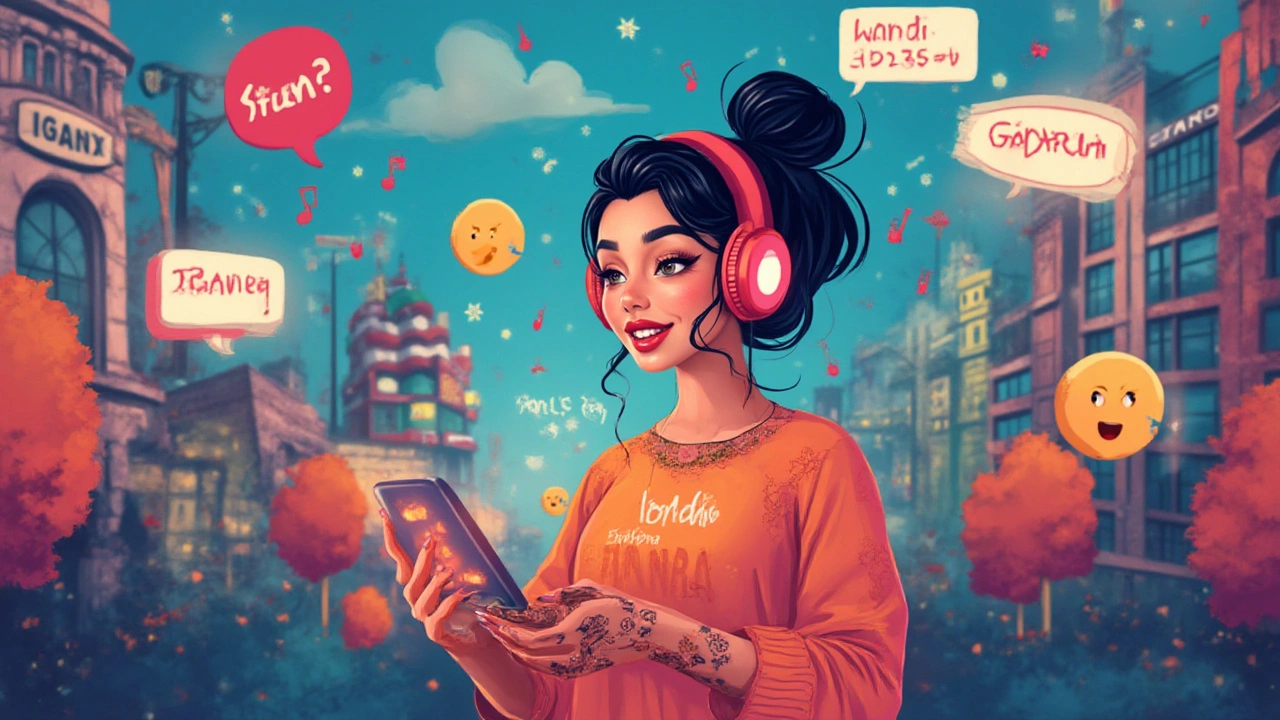If you’ve scrolled through Twitter or TikTok, you’ve probably seen someone gush over a celebrity or a band with something like, “I stan her,” or “I’m a total stan for this show.” Stan sounds simple, but there’s more to it than just being a fan. The word’s become its own cultural flex—if you stan someone or something, you’re letting the world know just how deep your loyalty or obsession runs. But wait, is it just a fancy way to say “fan,” or is there some juicy backstory? The British slang scene has grabbed hold of “stan” and spun it into everyday talk. By the end of this article, you’ll not only know what “stan” means, but also why people use it, where it comes from, and how it worked its way into the British vocabulary.
The Origin Story: How Did 'Stan' Enter Slang?
Not every slang word travels the world and lands in every group chat, but “stan” has sprinted across the globe. The story starts back in 2000 with Eminem’s hit song “Stan.” In the song, Stan is the name of a superfan who goes a little too far and floods Eminem with obsessive letters. Spoiler alert: it does not end well for Stan. But weirdly, instead of putting people off, the name stuck and took on a life of its own. Over time, calling yourself a “stan” meant you admired someone with intense, almost comical devotion—but, y’know, usually not the creepy kind.
By the 2010s, the internet exploded with fandom culture. Platforms like Tumblr helped charge “stan” into a verb—“I stan,” meaning “I support/adore.” On Twitter, “stan Twitter” became the digital playground for diehard supporters of everything from singers to sports teams. In the UK, pop-culture trends don’t take long to catch on. British teenagers on Snapchat and TikTok started using “stan” the same way Americans did, but quickly mixed it with their own sense of humor and sarcasm. The Cambridge English Dictionary now lists “stan” as a verb meaning “to admire a famous person, especially a pop singer, very much.” That’s a big deal for a word that’s barely 25 years old.
What Does 'Stan' Actually Mean Today?
Depending on where you’re hanging out online or IRL, “stan” can mean slightly different things, but the core idea is always someone who’s passionately devoted. If you “stan” Harry Styles, you’re not just a fan; you’ll defend him in arguments, know deep cuts from every album, and buy tickets for every tour if you can. The level of devotion can get so wild, pop culture now calls huge fan armies “stans.”
Here’s the twist: in British slang, “stan” isn’t just about big stars. British teens have used it for TV shows (“I stan Love Island!”), football teams, and even random trends (“We stan the return of good pub chips!”) It can be serious but is often laced with irony. So when someone says “We stan a queen” about a mate who aces a test, it’s equal parts support and cheeky humor. The word fits the British talent for mixing genuine fandom with sarcastic wit. It’s even shown up in formal publications—The Guardian had an entire piece about “stan culture” and the internet’s wild devotion cycles.

How Brits Use and Play with ‘Stan’
Think of stan as the ultimate compliment or roast, depending on delivery. You can stan a person, a product, or even a meme. The phrase “We stan” rolls off the tongue much like “legend” or “icon.” In British secondary schools, it shows up in group chats and classroom banter: “Do we stan this teacher, though?” Rather than just “I like,” stan says, “I’m honestly, probably irrationally, obsessed.”
But Brits don’t always play it straight. Sometimes, people will ironically stan something obviously uncool, like soggy chips or a TV character everyone hates. It’s all about the tone and context. On social media, you might spot entire comment threads stanning fictional characters, random cats, or even politicians (usually with some sarcasm thrown in).
Here’s a look at how often “stan” pops up in real life and online:
| Setting | Typical Stan Usage | Example Phrase |
|---|---|---|
| Twitter UK trending | Pop culture debates/fan support | “Can’t believe she won! We stan a legend!” |
| Group chat with mates | Hyped up recommendations or roasts | “Stan this playlist, best tunes ever.” |
| School or uni | Shoutouts, jokes, praise | “Proper stan that answer in class.” |
| Football fans | Pure loyalty or banter | “Stan this team till I die.” |
| Family dinners | Ironic/funny support | “Stan gran’s roast potatoes.” |
If you’re new to the UK or just want to blend in with the younger crowd, get comfortable with “stan” and watch for the playful tone Brits love to use.
Interesting Facts and the Dark Side of Stan Culture
Stans have accomplished some impressive (and sometimes wacky) things. BTS’s fandom, called ARMY, helped fund disaster relief efforts in 2022. Taylor Swift stans have broken Spotify streaming records. In the UK, Ed Sheeran’s devotees have organized surprise charity events just because Ed mentioned a cause on Instagram. But stan culture can get intense; cancel campaigns, Twitter wars, and full-on internet battles sometimes break out. In 2023, a survey by Digital Sociolinguistics Lab found 64% of young Brits had witnessed a “stan war” online, usually triggered by a heated ranking or an out-of-context tweet.
Some brands now actively encourage “stanship.” Streaming services design playlists to attract stans by clustering similar artists. Even politicians have hired social media teams to cultivate “stan armies” and boost campaigns. But not everyone loves the stan vibes. Critics say the obsession can blur healthy boundaries and encourage herd behavior. Some celebrities have asked their stans to calm down, most notably when K-pop stans flooded hashtags with fancams to protest social issues. Still, the vast majority see it as good fun, if occasionally wild.

Smart Tips for Using and Spotting 'Stan' Like a Local
If you want to start using “stan” in casual British conversations, a few tips will help you blend in:
- Listen for context: Is the person genuinely enthusiastic or playfully sarcastic? Brits love irony, so don’t take everything at face value.
- Mix it with local flavor: Pair “stan” with other slang. “We stan a legend” sounds even more Brit with, “Proper stan this banger of a tune!”
- Don’t overdo it: Nobody likes a try-hard. Sprinkle “stan” in group chats or funny tweets, but don’t force it every sentence.
- Watch for changing meanings: Gen Z slang moves fast. If everyone’s moved on to “slay” or “iconic,” don’t hang on to stan too hard.
- Remember the meme potential: Sometimes, “stan” is used in obvious jokes, like stanning a failed cake on Bake Off. Go with the flow.
- If you’re writing or speaking to an older crowd, be ready to explain—but keep it light. Most over-30s will have heard it by now, but never assume!
British slang never stands still. Stan started out as a superfan word, but it’s now part of everyday vocab, ironic jokes, and even news headlines. If you want to sound like you know what’s up in 2025, this is one word you’ll want to keep in your pocket.

